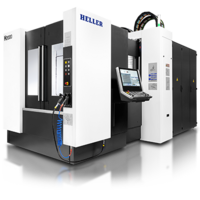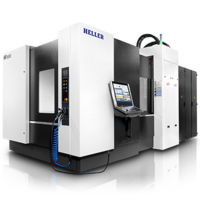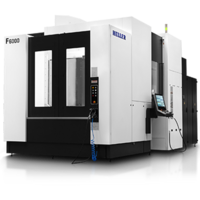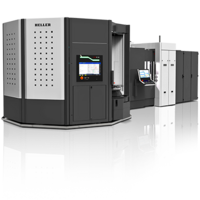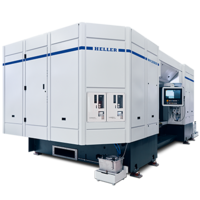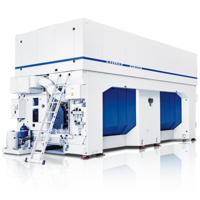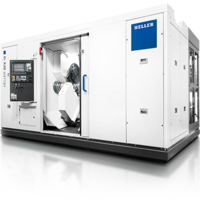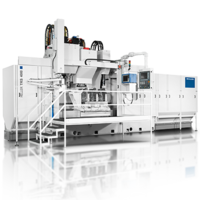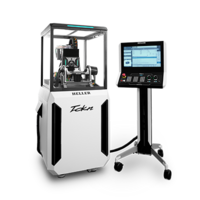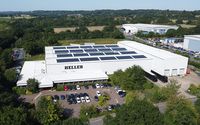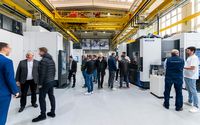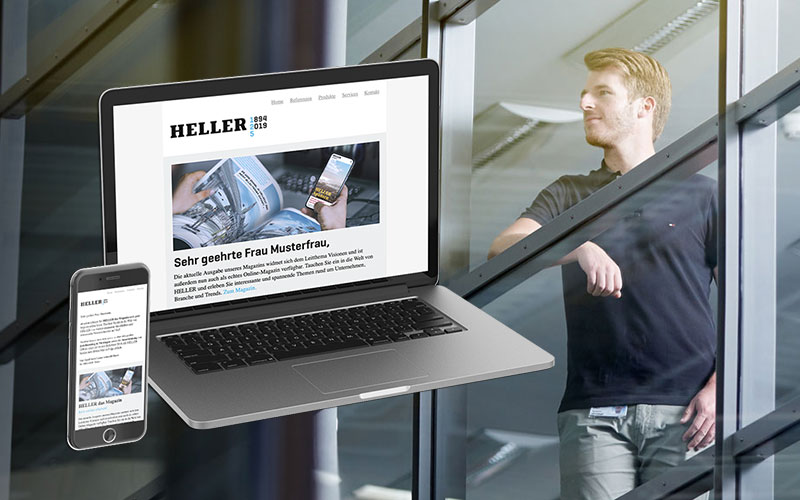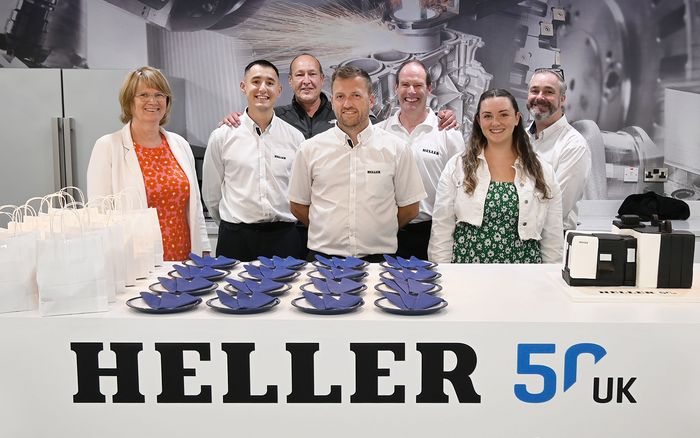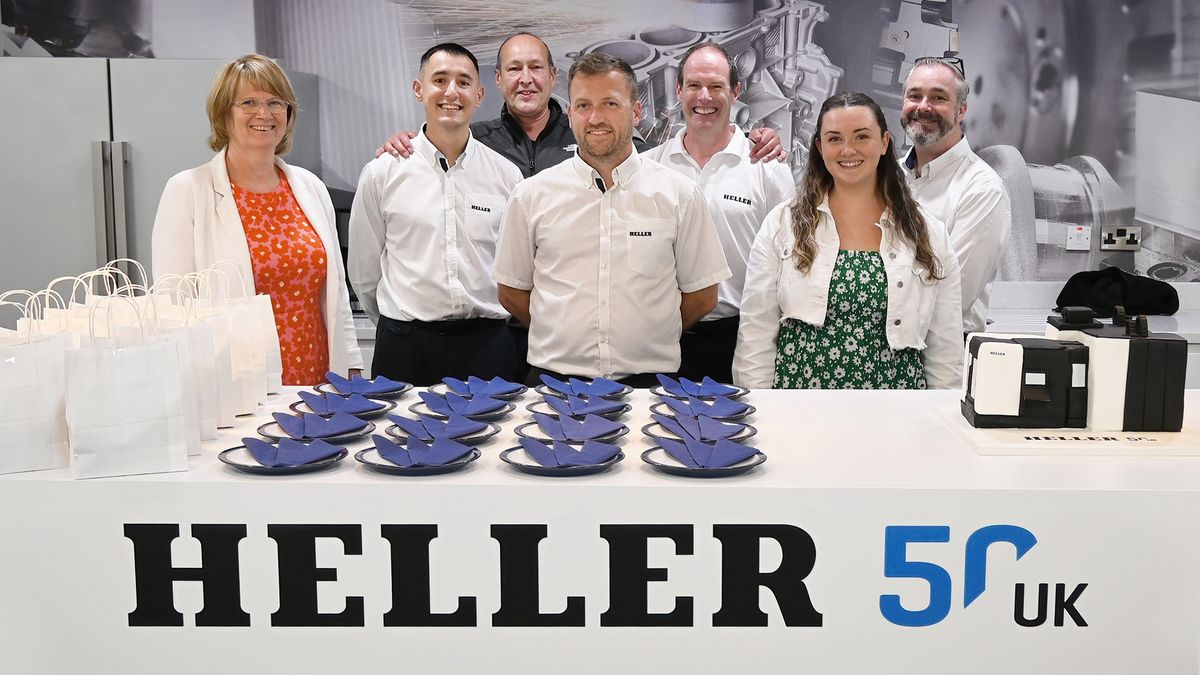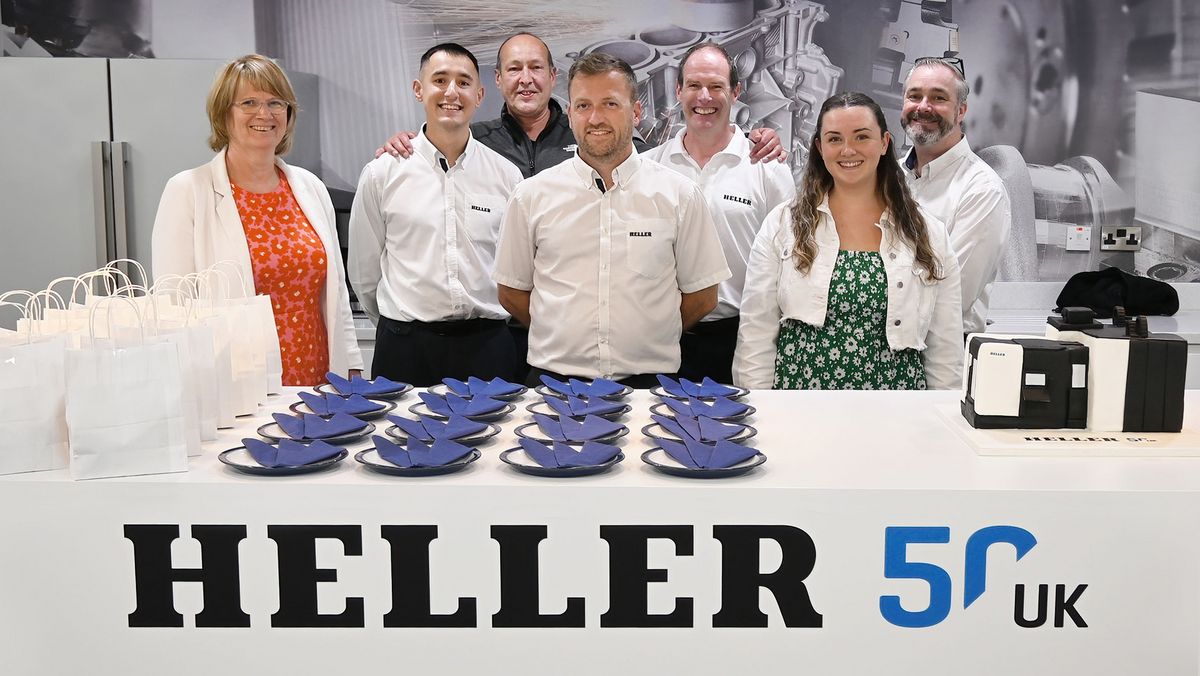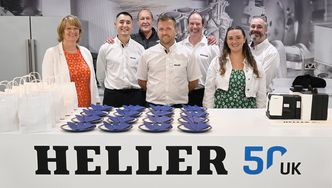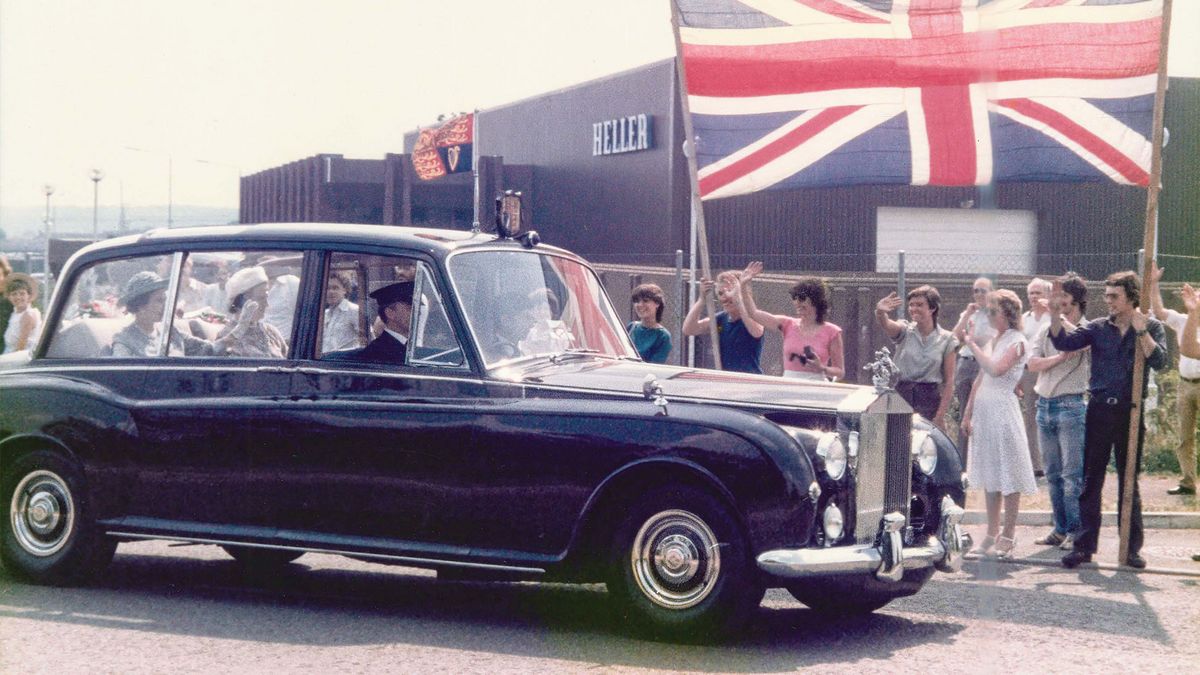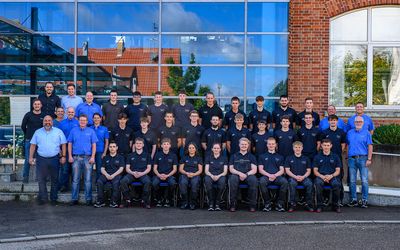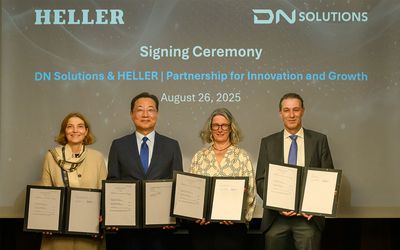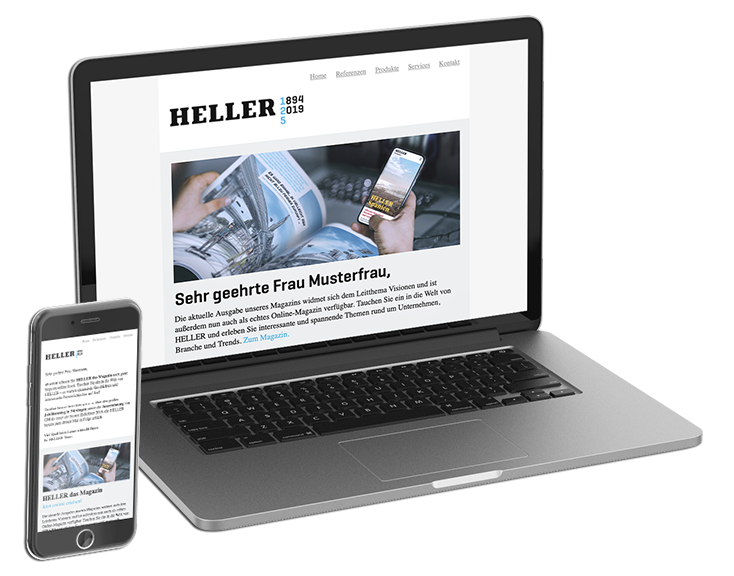HELLER Machine Tools Ltd, Redditch, a wholly owned daughter company of German machine tool manufacturer Gebr. Heller Maschinenfabrik GmbH, is celebrating its 50th anniversary this year (2024). Both the parent company and the UK and Ireland subsidiary build 4- and 5-axis horizontal machining centres for world markets, used widely for metal cutting applications in the mechanical engineering, aerospace and automotive industries, as well as in the yellow goods sector and throughout manufacturing industry. The UK site is a global competence centre for turnkey projects and innovative manufacturing solutions.
HELLER began operations in the UK in 1974. In 1981, a bespoke factory was built in Redditch, relocating in 1997 to a facility capable of assembling more than 200 machines per year. The assembly capability has since been extended to over 300 machines, which are destined for global markets. Today, more than 150 employees work at the machining and manufacturing facility, providing unparalleled machine tool solutions, service and support.
More than £2 million was spent in the latter part of the last decade upgrading the production facility, improving the administrative and applications engineering departments, and introducing a new customer area for machine demonstrations. Turnover has increased steadily over the years, partly due to a higher level of unit sales including multiple machine orders, both domestically and overseas. Contributing also to higher turnover is income from spares and from servicing the ever increasing installed base of HELLER machine tools in this market.
Flow line assembly
Originally, block assembly of machines in the Redditch facility was transferred to an original flow line that is still operating. It resulted in an immediate 20 per cent increase in productivity. However it was purely a mechanical process and the machines had to be lifted off to be finished in a separate part of the factory.
In contrast, the latest 11-station Strothmann flow line and logistics system, positioned adjacent to the first line, allows the complete manufacture of horizontal machining centres, including their commissioning in situ on the carriage. When the line came on stream in 2018, there was a further reduction of at least 20 per cent in overall assembly time, which is coming down further all the time as lean manufacturing principles are increasingly adopted.
At every stage of the process, work carried out on a machine is documented by the individuals concerned, providing full traceability to comply with the factory's ISO 9001 accreditation. Care has been taken to develop a supply chain of around two dozen regular contractors local to Redditch.
Mechanical assembly of machining centres is completed over the first four stations in the line. Electrical commissioning takes between two and four days and occupies one or two further stations. Later stations are deployed similarly flexibly according to the amount of work required, including geometrical alignment, laser calibration of the axes to ensure repeatability and alignment testing.
The last part of the process is to machine a standard National Aerospace Standard test piece, which is inspected by an independent team of metrology staff on site to give the customer a guarantee of the machine's accuracy. Once each machining centre reaches the end of the line and is removed for despatch, the Strothmann carriage is lifted by crane and carried back down the gangway to the start of the line to begin the process again.
Solutions-based approach
Manufacturing businesses often face a protracted and complex bidding process, especially when quoting to supply aerospace and automotive OEMs or their supply chains, and negotiations can take a long time before contracts are finalised. The date set for start of production usually remains unchanged, however, which means that engineering implementation time from go-ahead to project commencement is compressed.
HELLER has the knowledge and experience of developing production processes in short time frames, as well as software tools for NC programming and cycle verification. It also has the infrastructure to produce often complex fixtures, plus machines and tooling in Redditch for cutting trials to prove each step of the process in parallel with the turnkey design, while continuously feeding back relevant test data.
Initial discussions between a subcontractor and the machining solution provider frequently centres on achieving the necessary cycle times across the range of components to be produced in order to achieve the required piece part cost and profit margin. HELLER uses advanced simulation within Siemens NX to check the estimated cycle time and also exploits machine simulation within Vericut. When results are compared to dry running on the machine, a correlation within 5 per cent of actual cycle time is typical.
It provides confidence that software cycle time predictions are consistent with those that have been promised. It is even possible to simulate leaving different amounts of stock on a component after roughing and then compare those scenarios with removing varying amounts of metal during finishing. In this way, cycle times can be optimised and the subcontractor can benefit from savings in time and cost. Any production solution can be integrated into an Industry 4.0 environment so that users can maximise productivity and accuracy.
Automation for lights-out running
To get the most from investment in a machine tool and to minimise labour costs, lights-out production offers manufacturers an attractive, cost-saving benefit by increasing the output from the production cell. HELLER offers a number of automation options, while if a range of different components has to be machined an FMS provides key benefits for unattended working. By utilising multiple pallets to fixture numerous parts in an automated storage and retrieval system, machines can be kept busy throughout the night, so components are ready for further processing at the start of the next attended shift.
The machine tool manufacturer's expertise goes beyond automated loading and unloading of pallets carrying pre-fixtured parts. The entire machining system and logic are given careful consideration to ensure that the production planning requirements can be met with the resources available within the cell. HELLER ensures that tool contact times are accurately recorded in the NC program so the software within the automation system is able to plan tooling availability for any given pallet of parts. It is a complex task, as the system must utilise each tool to its maximum life before a sister tool is deployed to keep within the piece part cost.
Environmental responsibility
As is the case at the German parent company, HELLER in the UK takes the environmental impact of its activities seriously and is constantly looking for improvements, evidenced by its ongoing review of the company's adherence to ISO 14001. It recognises that all employees have a responsibility to the environment beyond legal and regulatory requirements and is continually looking to instigate training to enhance ecological performance as an integral part of business strategy and operating methods. Regular reviews ensure compliance and improvement. HELLER also actively encourages its suppliers, other stakeholders and even its customers to implement continuous environmental improvement measures.
Areas singled out for attention include making incremental enhancements to the working environment in the factory, reducing interruptions and the need for maintenance as these activities are energy consuming, lowering water usage, minimising packaging, and recycling everything from plastics, paper and card through metals, wood and pallets to electrical equipment. A recent initiative was the introduction of smart technology to control LED lighting, coupled with a policy of switching off all lights and electrical equipment when not in use to cut power consumption.
Further topics under regular review are restricting staff travel as far as is expedient and promoting the use of internet and telephone conferencing, scrutinising office supplies to evaluate their necessity, monitoring of cleaning materials to ensure that they are as environmentally friendly as possible, and the use of only licensed organisations to dispose of waste, particularly chemicals. Regular training of staff to commit to and action these policies reinforces all activities.
Conclusion
The Heller UK senior management team concluded, "The fact that we manufacture machines in this market, and can supply our own automation as well as a wealth of alternatives from third-party suppliers, gives us the flexibility to provide customers with finely-tuned turnkey production cells that add considerable value.
"Not only do our staff have a level of product knowledge that is much deeper than it would otherwise be, but additionally we can call on our apprentice-trained shop floor operatives to help with installation, commissioning and service, if required. The knowledge and skill base within Heller means that we are able to provide innovative solutions to accelerate project realisation further."

